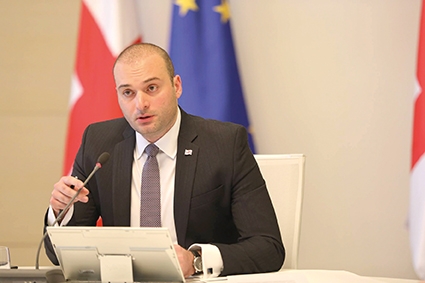PM: We Want to Efficiently Integrate into the Global Market
Georgian Prime Minister Mamuka Bakhtadze noted that Georgia is not a big market but that it is visibly trying to be efficiently integrated into the global economy.
In his interview with the Wall Street Journal (WSJ) Frontier, Bakhtadze discussed the Georgian government’s plans to transform a country with just 3.7 million citizens into a regional hub for finance, business, logistics, tourism and education.
Georgia is already ranked among the top 10 countries in the World Bank’s Ease of Doing Business ranking; however, according to the PM, the government is going to reduce taxes even more.
“We’re looking to abolish not only corporate tax for international companies operating in Georgia but also personal income tax for the people who work for them,” he said.
According to Bakhtadze, Georgia is the only country in the region that has free trade agreements with both China and the EU.
“We are committed to a lean government: we just reduced the number of ministries to 10, and we are trying to digitalize all our services,” he added.
One of the main challenges for the country is poverty, and Bakhtadze says the poverty rate is around 15% but he hopes to see it decreasing soon.
“One of the main reforms we are conducting now is in the education sector. We want to increase the human capital index by 20% and to help do that, we want to increase education to represent 10% or 11% of the GDP. We would like to have closer ties between business and education,” he said.
The PM also talked about the focus of the government in terms of foreign direct investment (FDI).
“We are committed to diversifying our economy to attract more FDI. Last year it was a historical high of almost 12% of GDP, about $2 billion. We are more focused on FDI from high-tech companies, with a view to creating more high-value-added products, because we want to provide a better environment for start-ups,” he underlined.
As for the country’s stance on blockchain, Bakhtadze says Georgia was the first country to introduce blockchain technology into its public services in real-estate registration.
“The results were extraordinary. We cut operational costs by 30% and increased productivity. Now we are focused on digitalizing healthcare and education and will use blockchain in both,” he said, adding blockchain technology can significantly increase the level of services provided by government and by public organizations, and the Georgian government is trying to generalize it in all major fields.
By Thea Morrison
Photo source: PM’s Press Office












